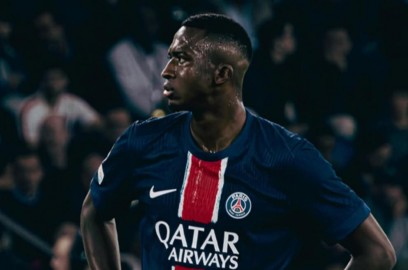
Every ambitious footballer dreams of reaching a professional level. Daily training, sacrifice, and determination are essential parts of this journey. But what do you do when, despite all your hard work, certain weaknesses in your skills persist? Should you give up? Absolutely not. Weaknesses can become your greatest strengths if you learn to use them wisely.
- IDENTIFY YOUR WEAKNESSES
The first step is an honest self-analysis as a player. What gives you the most trouble? Maybe it’s precise passing, your weaker foot, speed, or heading ability? Being aware of your limitations is key to overcoming them. Many players hide their flaws, pretending they don’t exist, which only leads to repeating the same mistakes. Recognizing what needs improvement lays the foundation for action.
- WORK ON WHAT YOU CAN CONTROL
Some limitations, such as genetics or body structure, may seem difficult to change. But skills like technique, tactics, and mentality are entirely within your control. Focus on daily efforts that bring small but lasting results. Regularly practicing with your weaker foot or adding speed drills to your routine can, over time, turn your weaknesses into strengths.
- FIND YOUR NICHE
Football is a team sport where every player has unique responsibilities. If you feel you’re falling short in one area, try to emphasize your other strengths. Not fast? Become a creative playmaker. Struggle with dribbling? Focus on defensive play and tactics. Every player, from striker to goalkeeper, can find their niche that makes them indispensable to the team.
- USE A LACK OF PRESSURE TO YOUR ADVANTAGE
Paradoxically, a weakness can give you an edge—less pressure allows for greater freedom to experiment. When opponents assume your weaker foot or slower pace will hold you back, you can surprise them. Use these imperfections as a tactical element—a moment when the opposition least expects your move.
- FOCUS ON MENTAL STRENGTH
Technical or physical weaknesses can be improved, but true success starts with your mindset. Many players stop pursuing their dreams at the junior level because they can’t handle pressure or criticism. How you approach challenges—your ability to endure tough moments and maintain consistency—determines your chances of success.
Mental Tips:
- Learn to enjoy the process of improvement, not just the results.
- Treat mistakes as lessons, not failures.
- Focus on your strengths and build confidence.
- SEEK SUPPORT AND ROLE MODELS
You don’t have to face your challenges alone. Ask your coach for help in developing a personalized improvement plan. Look for players who’ve overcome similar obstacles. One such example is N’Golo Kanté, a player who, through relentless hard work and determination, overcame his limitations to become one of the best midfielders in the world.
- UNDERSTAND THAT NO ONE IS PERFECT
Even the best footballers have their weaknesses. Cristiano Ronaldo, considered one of the hardest-working players, never reached Messi’s level of dribbling. Instead, he focused on perfecting his shooting, strength, and aerial ability, which turned him into a legend.
CONCLUSION
Your weaknesses do not define you as a player—how you respond to them does. Instead of treating your flaws as obstacles, see them as opportunities for growth. Every day of training is a chance to turn imperfection into an advantage. Remember, the path to professional football isn’t just about physical and technical skills—it’s about character, determination, and adaptability.
Become the player who not only overcomes their weaknesses but turns them into their greatest strengths.





